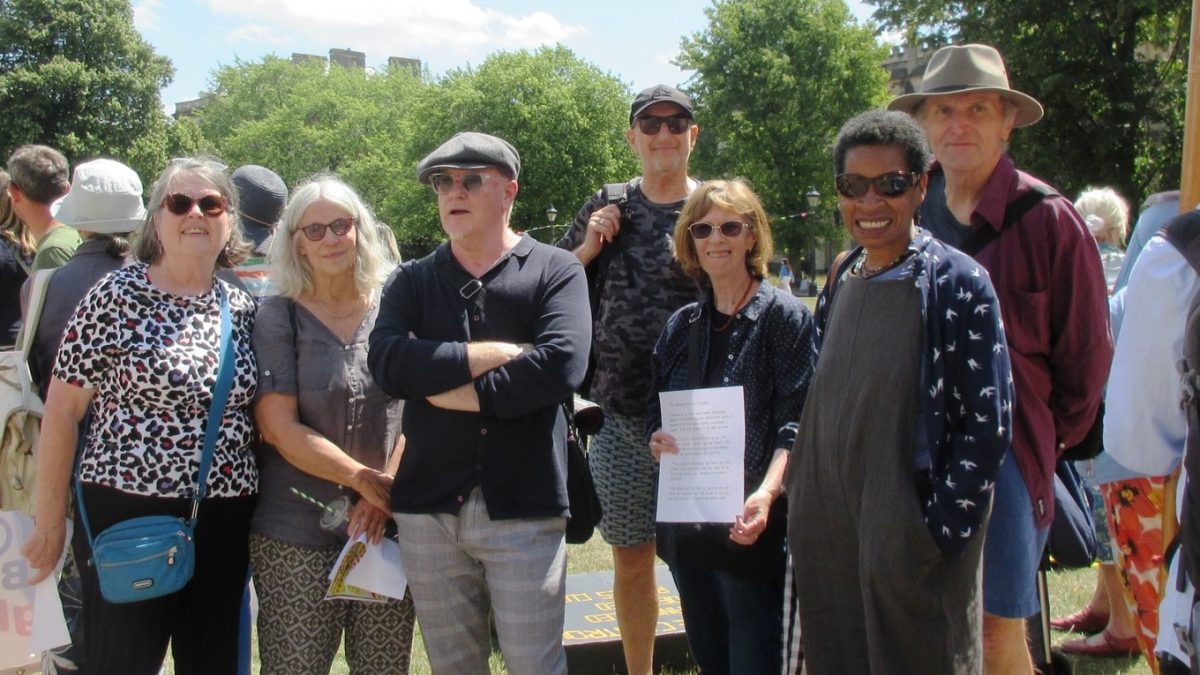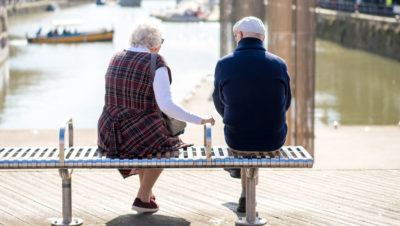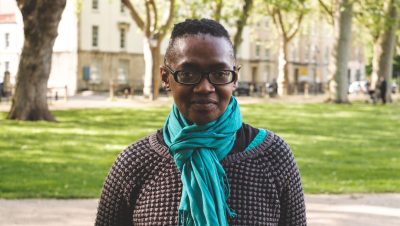Your say / Bristol Older People's Forum
‘Older adults are either seen in a certain way or not at all’
Let us start by acknowledging that ageism affects people in diverse ways. The fact that we lump everyone over the age of 50 or 55 into one homogenised group is problematic.
So, who are the older people? In policy terms it is a challenge, which often ignores the complexities of age range, class, gender, ethnic background, disability, and sexuality. Older adults are out there, but who are they? ‘Not me, it’s probably those other people. ‘
The net result is that professional interventions and services are often based on a ‘catch-all’ approach to older people. This is further exacerbated by framing older adults around conflicting and stereotypical language – older people on the one hand are perceived as frail, vulnerable, a burden on society, or as superhuman, running marathons and such like.
is needed now More than ever
This can be further reinforced by our everyday conversations and interactions with people – where we blame ourselves with expressions like ‘I’ve had a senior moment’ or ‘oh dear I’m always forgetting things’; and through structural ageism – embedded into laws, rules, social norms, policies and practices within our institutions. Ageism, therefore, becomes all-pervasive and accepted in all levels of society.
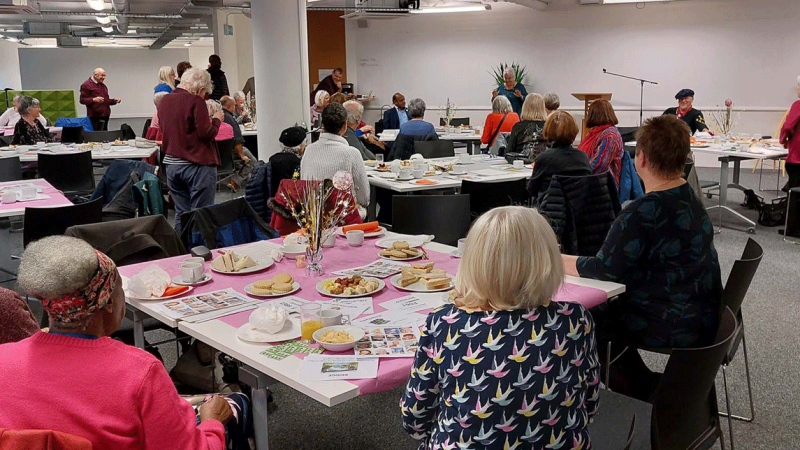
The Bristol Older People’s Forum was established in 1993 and currently has almost 3000 members – photo: Bristol Older People’s Forum
We are invisible – where are we? Can you see us?! Older adults are either seen in a certain way or not at all. There are plenty of images of walking sticks, older people hunched over, older people with wrinkly hands or staring forlornly out of a window.
On the other hand, you will not often see in graphics, photos, adverts, social media, or communications, where older adults are going about their everyday business, stereotype-free.
On TV, the radio or in news print, older people are often referred to as ‘the elderly’ or ‘plucky pensioners’, or older women as grandmothers, or grumpy old men and women, or even as ‘Captain Toms’, kindly souls with war medals and raising money for charity.
This is a major contributor to negative stereotypes.
And it gets worse. If you tune in to day-time telly (luckily I still work full-time so can avoid) you’ll get adverts for stair-lifts, commemorative gold coins, cremation plans, life insurance (no questions asked and a free pen) and such like – presented to you by middle class white, heterosexual older couples (actors) dressed in pleasing sensible jumpers and slacks in pastels (I call this the ‘Valdoonicanisation’ of fashion for older adults).
Oh, and do not forget Sir Ian ‘Beefy’ Botham erstwhile cricketing great, advertising weird vibrating gizmos to improve your muscles, while sitting down in your comfy armchair.
The pressure is on us to look like you did when you were younger.
Women, and more increasingly men, are bombarded with products to hide the wrinkles, tackle the ‘ravages of time’ and cover that ‘unsightly’ balding patch. From the more drastic, plastic surgery to Botox and chemical fillers, the ageing process is treated like a disease which we must all avoid at all costs.
Again, this devalues and ignores the positives of ageing, the wisdom, the experience, the expertise, and the ability to not care about what people think. Oh, and what is wrong with a few creases and crinkles!
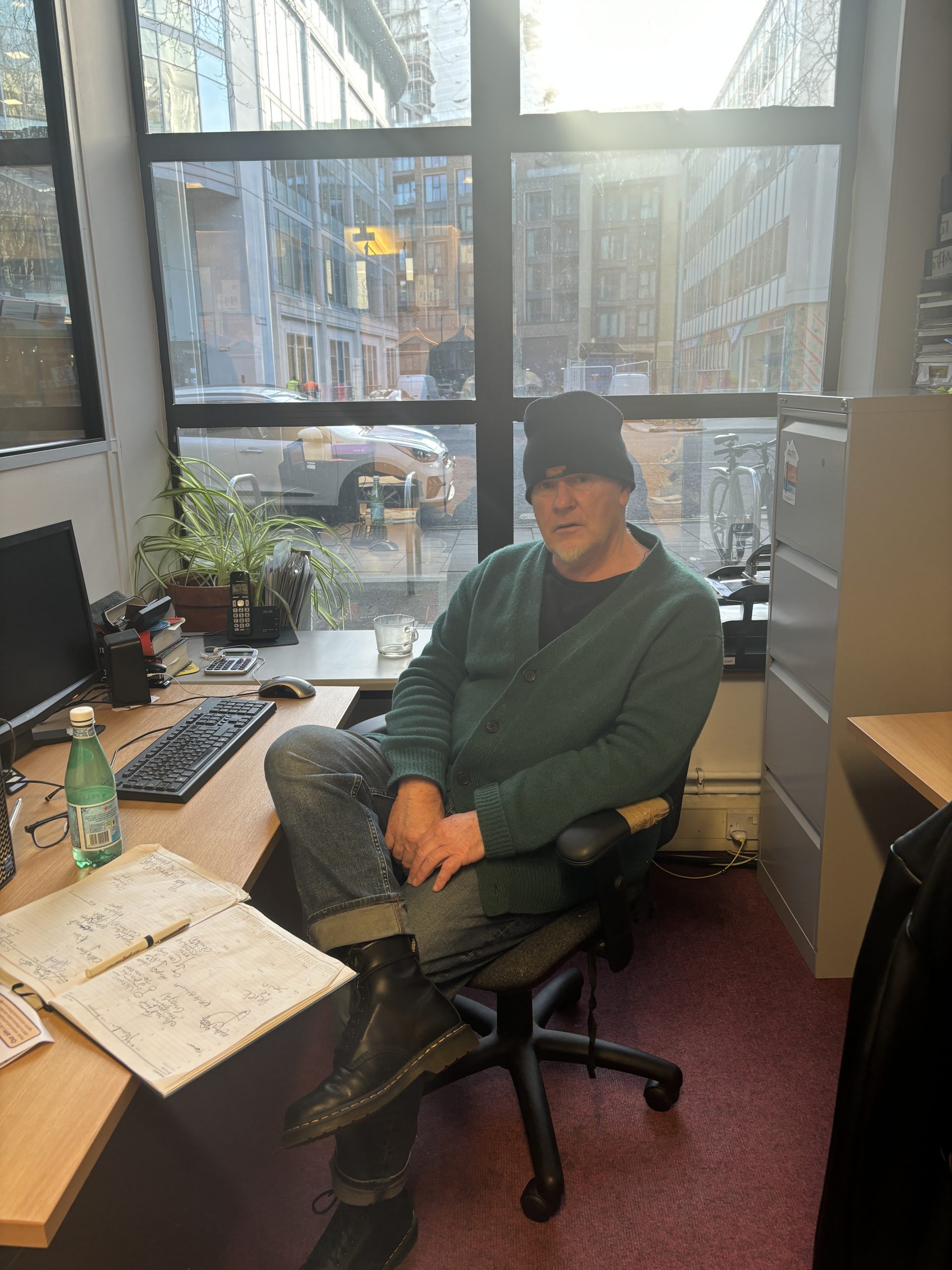
Other than being director, Ian is also the forum’s engagement and development manager – photo: Seun Matuliko
Professional intervention with older people is often focused on keeping people occupied and active.
Again, this is often based on a set of pervasive negative assumptions of frailty, vulnerability, poor health, and the idea that older people are passive.
This can also be framed around ‘infantilisation’ or ‘elder speak’ – the tendency to treat older adults as children.
Of course, many older people are keen to participate in groups and enjoyable social activities – but not everyone wants to sit around doing ‘colouring in’ (often in care homes) or having a ‘sing song’ from World War II. These are activities often imposed on older people by younger professionals or ‘do-gooding’ volunteers – without asking the people themselves what they want.
We often look for simple ‘common-sense’ solutions to difficult issues. Blaming immigrants, people on benefits, and, more recently, disabled people for everything that’s wrong in the UK.
In this, I would include the media-led culture wars based on the ‘Millennials vs Boomers’ narrative.
Here, we end up with a set of negative stereotypes with younger people blaming older people for being too wealthy and too reactionary, and the older generation pointing the finger at young people being anti-social and lazy. This is how the divide and rule playbook operates – used by the powerful against the powerless.
The ‘it was better in my day’ perspective reinforces the idea of a halcyon days somewhere in the past. Such nostalgia has also found its way into interventions with older people.
There is some value with memories work – particularly for those living with dementia, and we all enjoy reliving our bygone adventures or talking about a favourite rock track, but the over-emphasis on past lives, devalues who we are today. Youth identity is valued in society, and the positives of older age are buried away.
So how can we do things better?
We can start by recognising and using the skills, knowledge, expertise and lived experience of older people.
Bristol Older People’s Forum works on a social-empowerment model, either directly representing our three thousand members, or ensuring that older adults are in the room – at the heart of policy and decision-making.
This means that older people themselves can identify the issues that affect them and, working with public bodies, find practical solutions. It means that we must challenge all forms of ageism, age discrimination and ageist stereotyping – still embedded in our institutions.
It means that we support activism and campaigning led by older people.
It means that older people are not discriminated in the workplace based on age. And it means that we do not need to spoil what can be a positive life situation by casting a shadow over the process of ageing.
So, let us start by challenging the ageist narrative, by kicking patronage and passivity into touch, and by celebrating age and ageing as older people.
This is an opinion piece by Ian Quaife, the director of Bristol Older People’s Forum
If you would like to write an opinion piece to be featured on the website, please send an email to ed-team@bristol247.com with your opinion piece idea and we will get back to you with instructions on the next steps.
Main photo: Bristol Older People’s Forum
Read next:
 Our newsletters emailed directly to you
Our newsletters emailed directly to you